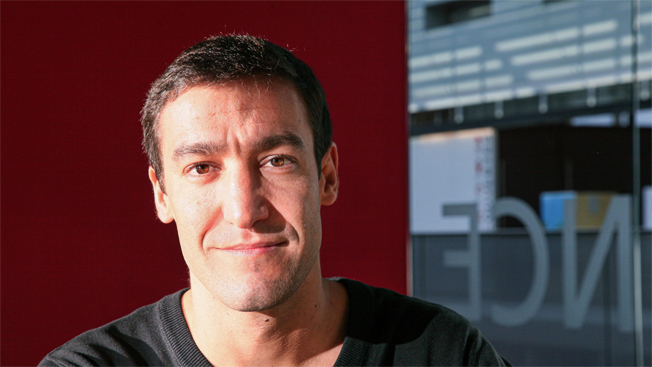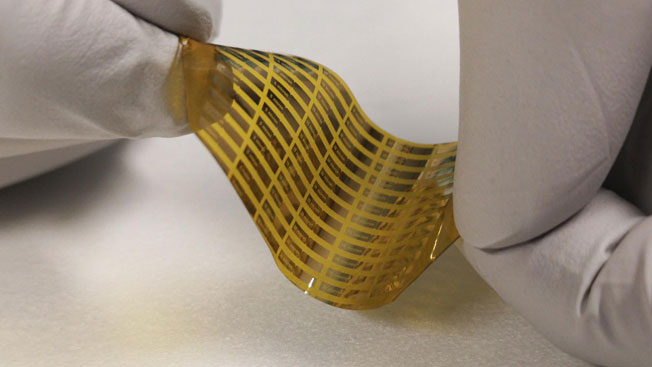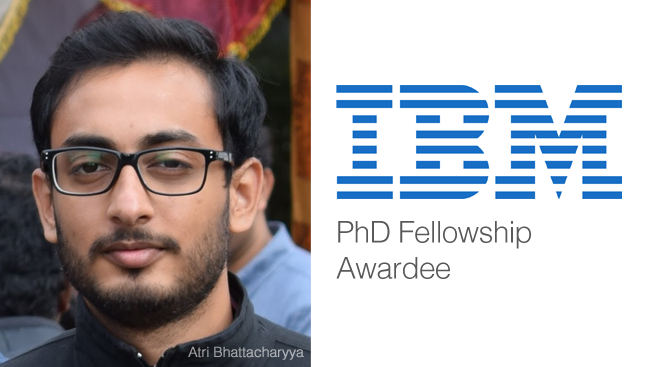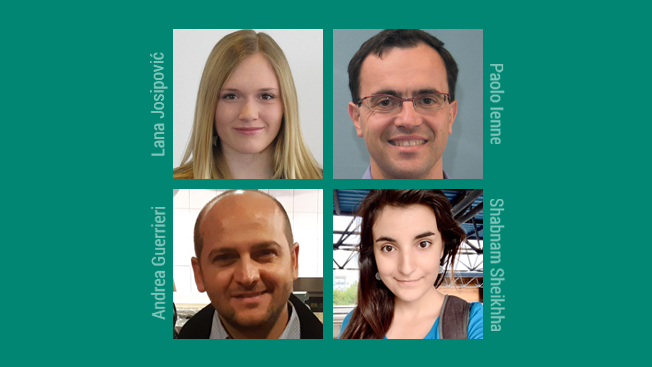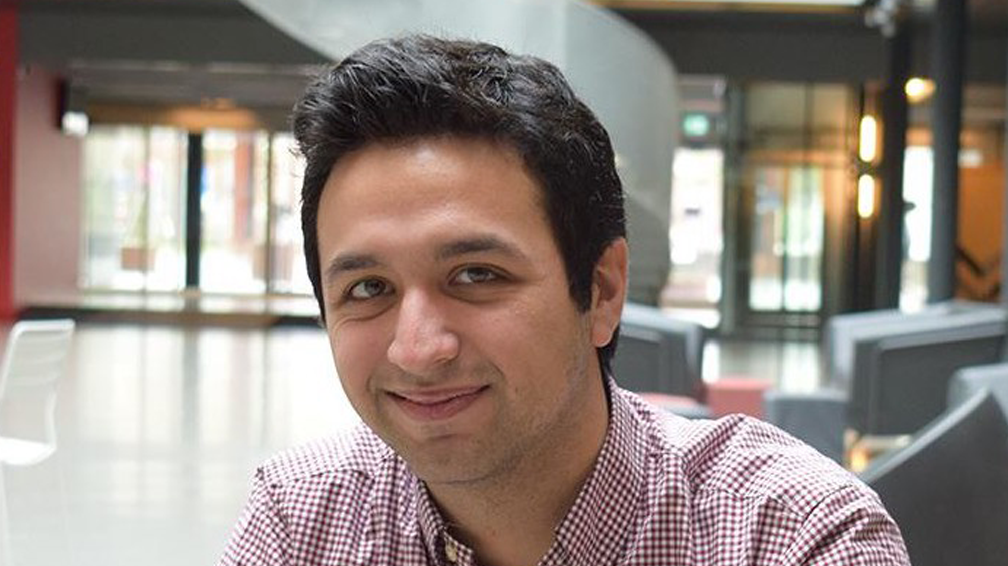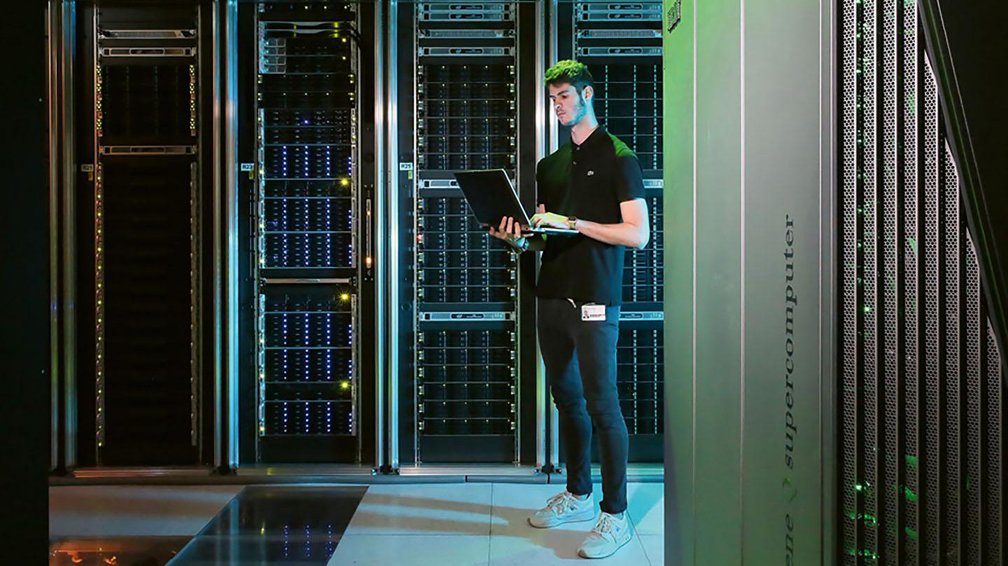A group of five researchers at EPFL’s Embedded Systems Laboratory (ESL) have developed an artificial intelligence-based system that allows you to record your cough and have it analyzed almost instantly to indicate whether you have COVID-19. In a few weeks’ time, the team will release an app, aptly named Coughvid, which will be available for free and direct download to your devices.
Read MoreArticles by John
JEDI Empanels EPFL Scientists in Search for COVID-19 Cure
JEDI has appointed a high-profile scientific committee to run the ‘Billion Molecules against COVID-19’ challenge, including Babak Falsafi and Bryan Ford from EPFL’s School of Computer and Communication Sciences.
Read MoreEPFL, ETH Zurich Lead Contact Tracing Technology to Tackle COVID-19
Researchers from EPFL and ETH Zurich have developed a digital contact tracing technology by working closely with a large number of European colleagues. They are now very close to releasing a solution called DP-3T (Decentralized Privacy-Preserving Proximity Tracing).
Read MoreEPFL Software Helps Cryptographic Innovation for Swiss Hospitals
In a major breakthrough last year, EPFL and the Lausanne University Hospital (CHUV) collaborated to develop a secure software called the MedCo system. The system took shape in the Laboratory for Data Security (LDS), headed by Professor Jean-Pierre Hubaux, and is based on software libraries developed by the Decentralized and Distributed Systems (DEDIS) Lab, headed by Professor Bryan Ford.
Read MoreDigital Humanities in Pandemic Times: A Data Scientist’s Approach
To steer clear of false or misinterpreted information during the pandemic, Robert West advises a three-pronged strategy: check the sources of data interpretations and of the data itself; check whether graphs representing coronavirus data are linear or logarithmic; and retain the correct perspective by staying updated about data on the virus.
Read MoreNew Nanodevice to Bridge the Terahertz Gap
The nanodevice has the capacity to generate terahertz waves that are 20 times more powerful than any existing device today. That is a revolutionary advancement in the field because terahertz waves, despite their immense potential, are extremely difficult to achieve.
Read MoreAtri Bhattacharyya Awarded IBM Ph.D. Fellowship
Atri joined EPFL in 2016 and completed his MS in Computer Science in 2018. Since then, he has worked at EPFL in the areas of microarchitectural security and design, and datacenter architectures. Through his years at EPFL, Atri has worked under the supervision of Prof. Babak Falsafi, Prof. Paolo Ienne, and Prof. M. Payer, completing many projects along the way.
Read MoreEPFL Researchers Win Best Paper Award at FPGA’20
Lana Josipović, Shabnam Sheikhha, Andrea Guerrieri, Paolo Ienne (all from EPFL, Processor Architecture Lab), and Jordi Cortadella (from Universitat Politècnica de Catalunya, Barcelona, Spain) are winners of the Best Paper Award at the 28th ACM/SIGDA International Symposium on Field-Programmable Gate Arrays (FPGA ’20), which concluded on February 25 at Seaside, California.
Read MoreFacebook Fellowship for EPFL Students
The Facebook Fellowship Program, initiated in 2013 and awarded in 21 different categories, encourages and supports doctoral students who are engaged in innovative research on computer science, engineering, and allied domains. The winners for 2020 have been announced, and they include the first-ever awardees from EPFL. Panagiotis Sioulas and Merlin Nimier-David, both PhD students at the School of Computer and Communication Sciences, are winners in the categories of Structured Data Stores and Computer Graphics respectively.
Read MoreComputer Science at EPFL: James Larus Charts the Future
Computer Science is taking rapid strides in realigning itself to advancing technologies. It is beginning to emerge from the cocoon of traditional research to address new challenges posed by avant-garde technologies. In an article published in EPFL Magazine in December 2019, School of Computer and Communication Sciences (IC) Dean James Larus recorded his candid observations on the current status of the discipline at EPFL and the way forward.
Read More